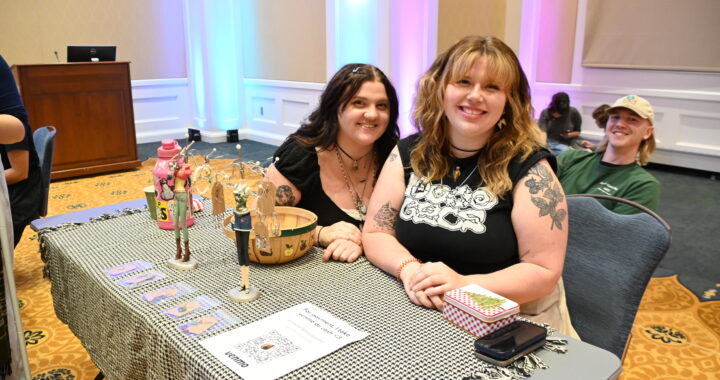UMW partners with AT&T for texting and driving simulator
3 min readBy EMILY HOLLINGSWORTH
According to a recent study from AT&T, seven out of 10 people reported
that they text or check social media behind the wheel.
Distracted driving, particularly from smartphones, can risk drivers’
and pedestrians’ lives. Which is why the University of Mary Washington
and AT&T came together to bring awareness about distracted driving.
UMW was the first university in Virginia to host AT&T’s “It Can Wait”
campaign during their most recent nationwide tour on Aug. 26, which
met in front of the University Center. The campaign visited the
University of Virginia the following day and Virginia Commonwealth
University on Aug. 28.
DRIVE SMART Virginia, a nonprofit organization that brings awareness
to distracted driving, also participated in the event, which lasted
from 9 a.m. to 7 p.m. DRIVE SMART Virginia had a pledge students could
sign that promised not to text or participate in any form of
distracted driving, and to wear a seatbelt.
The simulator was a black and white boxy car with a steering wheel and
goggles. The three-minute simulator put the user in the driver’s seat.
During the simulator, the virtual reality driver became distracted by
his phone, having several close calls before eventually turning in an
intersection without looking and colliding with another car.
AT&T launched its campaign against distracted driving, called “It Can
Wait,” in 2012. The campaign, which also has several commercials, made
a pledge people can take against smartphone use behind the wheel.
Since 2012, more than 7 million have pledged to the campaign.
Margaret Ransone, a member of the Virginia House of Delegates,
attended the event and commemorated the first “Losing Loved Ones in a
Tragic Accident Month,” a resolution adopted in February and set to
take place in the month of August.
Though the program focused on phone use and driving, Ransone said
using a smartphone is not the only way to be distracted behind the
wheel. Eating, drinking or even turning around to look at the back of
the car can put a driver at risk.
“[It’s about] making good decisions,” Ransone said. “It takes only a second.”
Christina Dempsey, a Fredericksburg resident who lost her sister and
niece in a car accident in August 2013, attended the event and handed
ribbons with DRIVE SMART Virginia for her independent campaign to
bring awareness to distracted driving, “3 Ribbons for 3 Reasons.”
Dempsey, who lives across the street from former Seacobeck Hall,
wanted students to know the repercussions of distracted driving can
affect anyone, and that there is no such thing as being too careful.
“[I want students] to come away with the realization that it can
happen to you,” Dempsey said.
Later in the day, UMW Police brought traffic cones, drunk goggles and
a go-kart. Students could navigate the cones while wearing the
goggles.
Mike Hall, UMW Chief of Police, said that in addition to cell phone
use and drunk driving, there are other ways to be distracted. Walking
and texting can be just as dangerous for students as texting and
driving.
“It’s important to be mindful [while] walking,” Hall said.
Hall also admires AT&T for understanding the risk of distracted
driving, and using their campaign to spread awareness about smartphone
use behind the wheel.
“Think it’s just a fantastic idea to collaborate with AT&T and DRIVE
SMART Virginia,” Hall said.
Freshman Paige Walton, who went on the simulator, said it made her
evaluate how she thinks about her phone when driving.
“When the phone beeps, I would look down,” Walton said. “I don’t think
about it, because it just happens, but [the simulator] made me think
about it.”
“I’m glad that I did it,” Walton said about driving the simulator.
To encourage students not to check their phones on the road, Walton
said to switch the sound off the phone.
“Turn the sound off, so you’re not even tempted,” Walton said. She
also recommended that when you do need the audio on a smartphone, such
as when using a GPS, to turn the screen away and only listens to the
audio to keep one’s eyes on the road.
Karina Donahoe, sophomore biology major, had similar advice about
muting smartphones behind the wheel.
“Put your phone on silent,” Donahoe said. “Put it in a bag or whatever
you’re carrying with you.”


